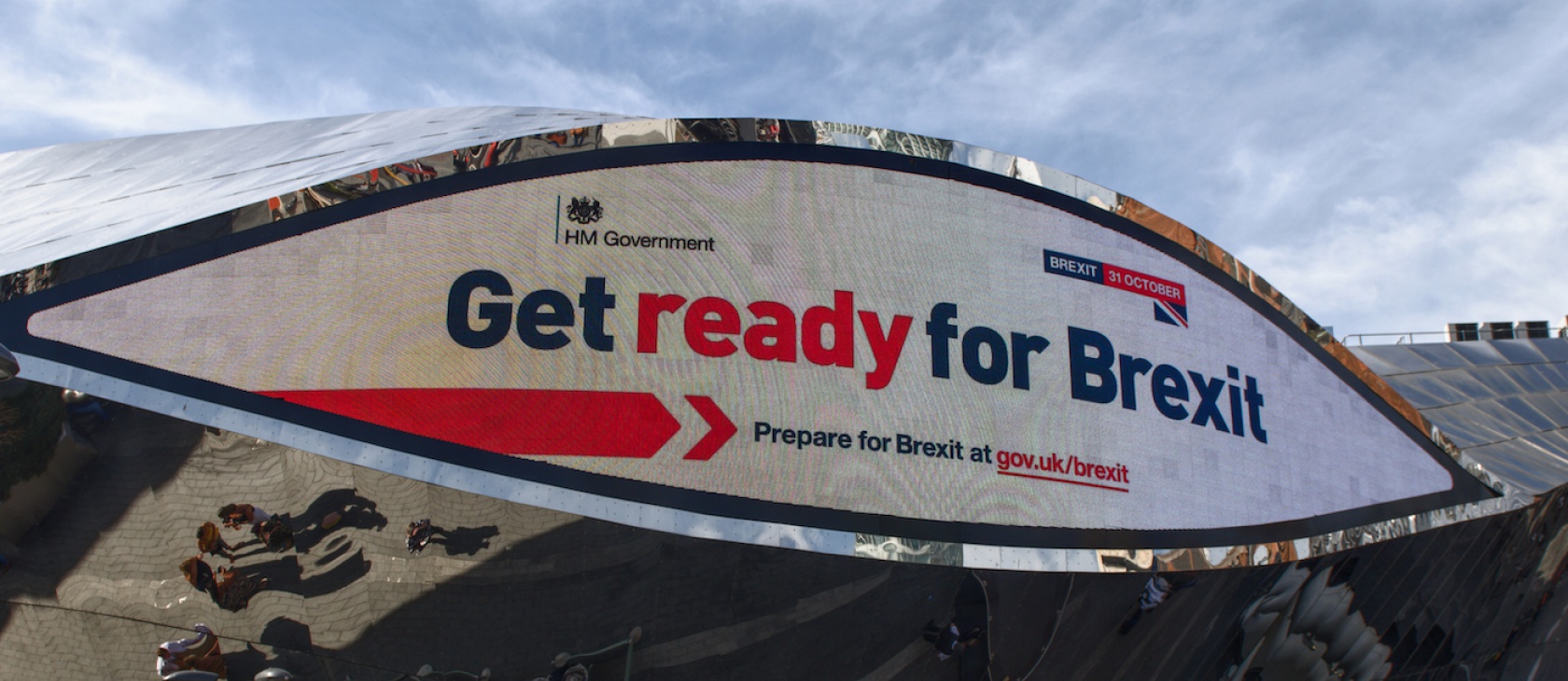Prime Minister Boris Johnson has negotiated an agreement to leave the European Union. The agreement is a significant improvement on the deal which Theresa May negotiated and represents a distinct step in the direction of free trade.
What has happened?
Remainers were adamant that the EU would refuse to re-open the Withdrawal Agreement. They argued that it was impossible for the Prime Minister to negotiate any improvements. In addition, so it was said, it would be impossible to leave by October 31. Boris Johnson’s deal accomplishes all three things.
All eyes now on the British Parliament, which will sit this Saturday. In essence the infamous backstop has been removed – the process, which, coupled with the “level playing field” of regulatory alignment, effectively bound the UK to the EU for eternity. It has been replaced by an imperfect, and indeed rather complex, series of customs arrangements and the requirement for the Northern Ireland assembly to give consent on a regular basis. This is a step forward but causes some complexities and has led the pro-Brexit Democratic Unionist Party (DUP) to oppose the deal – which definitely complicates the parliamentary arithmetic of passing the bill.
What are the key improvements over the May deal?
Nonetheless, it contains a series of improved aspects:
- The ultimate destination after the transition period is a Free Trade Agreement (FTA), not regulatory alignment with the EU;
- Northern Ireland remains in the UK customs territory and, hence, can benefit from future Free Trade Agreements with other countries (but see below);
- The so-called “level playing field” arrangements (that is, alignment of regulations) have been down-graded from the legal Withdrawal Agreement to the non-binding Political Declaration; and
- The backstop is removed and replaced by temporary alignment subject to a consent vote by Northern Ireland. This is a modest improvement overall and has not satisfied the DUP.
Overall, these improvements represent a real step in the direction of free trade and hence are to be welcomed.
Why are Democratic Unionist Party members unhappy?
The essence of the customs arrangements is that there will remain considerable alignment between Northern Ireland and the Republic of Ireland for a period of at least four years after the end of the transition period (which is scheduled to end in December 2020), unless the arrangement is replaced by a new free trade agreement. Northern Ireland will be able to benefit from UK-wide trade deals which are not incompatible with these arrangements. There will be an administrative border “in the Irish Sea” between Northern Ireland the rest of the UK, which will result in tariffs being collected for goods destined for the EU. It is a hotch-potch, a dog’s breakfast, but it is manageable in the short-term. For the DUP, however, it represents an arrangement which leaves them with different arrangements from the rest of the UK and, hence, in some danger of divergence from the UK as they remain more economically aligned with Europe. They can exit the arrangement (a vast improvement over May’s arrangement), but only via complicated mechanism of votes from either the full Assembly or from each of the main groupings in the Assembly. This effectively means a minimum of both Unionist and Republican communities must be in favour of leaving, which makes departure seems unlikely from the point of view of the DUP. The DUP remained relevant when its 10 votes in UK Parliament propped up Theresa May’s Conservative government following the 2017 snap election. Now that the government lacks a majority, Johnson feels less reliant on them, hoping for a cross-party coalition to pass the agreement.
What happens next?
The House of Commons will sit on Saturday, October 19, for the first time in 37 years. (The last time was to deal with Argentina’s invasion of the Falkland Islands.) There will be a statement from the Prime Minister, then a motion to accept the negotiated Withdrawal Agreement. Expect fireworks. Parliament is dominated by Remainers, and it is, mostly, Remainers who are in meltdown at the prospect of Boris Johnson succeeding. Boris will seek to characterise the vote as “this deal or no deal” and will argue that in any event we will leave the EU on October 31.
The Remainers will use three tactics to seek to frustrate Boris:
- First, they will attempt to make acceptance of the deal conditional on a second, or as they put it “confirmatory,” referendum. This is ironic, in the sense that they have never accepted the result of the first Brexit referendum of June 2016. And the choice they will seek to force will be to accept this deal or remain – but not “leave,” which, of course, they have already lost;
- Second, they will seek to defeat the deal itself, in order to force Prime Minister Johnson to seek an extension to Article 50. Another extension is, seemingly, required now by the recent act (which Johnson dubbed “The Surrender Act”) passed by the Parliament. There may yet be legal challenges and counter-challenges; and
- Third, there have already been pre-emptive legal actions to seek to prevent Parliament from sitting at all.
The ultimate outcome depends on several groups in the UK Parliament:
- The 28 Conservative Brexiteer Members of Parliament, who resisted May’s deal to the very end. Most of these seem likely to back Johnson;
- The 21 former Conservative Remainer MPs, whom Johnson expelled from the party after they supported the Benn Act. Some of these will fall in line and others, who are are pro-EU in any event and favour another referendum, will opposed the deal; and
- The 20-25 independent and Labour MPs who represent Leave districts or are leavers by conviction. A handful of these have already declared for the deal. The question is how many more exist, and whether they will hand the Conservative Johnson such an important political victory.
The outcome may also be a general election, which all parties say they support but few have been willing to trigger.
The Boris agreement certainly confounds the critics and will lead to a great deal of wailing, screaming, and legal actions in the days to come. It is far from perfect. However, it establishes a series of steps in the right direction, specifically in the direction of free trade and freedom from supranational governance emanating from Brussels.




